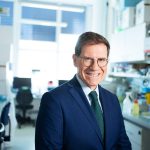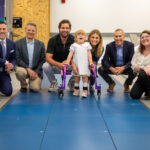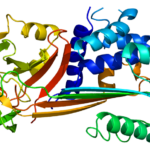 Researchers at the University of Pittsburgh School of Medicine will be taking the next steps toward regenerating a human heart, thanks to the National Institutes of Health (NIH) Common Fund High-Risk High-Reward Program.
Researchers at the University of Pittsburgh School of Medicine will be taking the next steps toward regenerating a human heart, thanks to the National Institutes of Health (NIH) Common Fund High-Risk High-Reward Program.
Lei Yang, Ph.D., assistant professor of developmental biology, received a 2014 New Innovator Award under the program, which is intended to support “exceptionally creative investigators who propose bold research ideas of unusually broad impact,” according to the NIH. Today, the NIH announced 85 grants to scientists proposing highly innovative approaches to major contemporary challenges in biomedical research.
“Supporting innovative investigators with the potential to transform scientific fields is a critical element of our mission,”’ said NIH Director Francis S. Collins, M.D., Ph.D. “This program allows researchers to propose highly creative research projects across a broad range of biomedical and behavioral research areas that involve inherent risk but have the potential to lead to dramatic breakthroughs.”
Dr. Yang will build on work, published in August 2013 in Nature Communications, in which his team stripped a mouse heart of its own cells and repopulated the remaining heart framework, or scaffold, with human multipotential cardiovascular progenitor (MCP) cells. After a few weeks, the mouse heart had not only been rebuilt with human cells, it also began contracting again, at the rate of 40 to 50 beats per minute.
The MCP replacement cells were produced by reverse engineering fibroblast cells from a small human skin biopsy to make induced pluripotent stem (iPS) cells and then treating the iPS cells with special growth factors. MCP cells could be further differentiated into major cell types in human heart, including cardiac myocytes, endothelial cells and smooth muscle cells.
In the new $2.3 million, five-year project, Dr. Yang and his team will first try to increase the strength and bio-function of the engineered mouse heart construct. In subsequent phases, they will use human MCP cells to reseed an acellular pig heart and then will try the technique on a human heart.
“This is a novel strategy that, if successful, could be used to regenerate personalized human heart tissues as well as whole hearts using patient-specific iPS cells,” Dr. Yang noted. “The results of this project could have a tremendous impact on therapies for heart disease.”
More information on current awardees and the NIH High Risk-High Reward Research Program can be found here.








